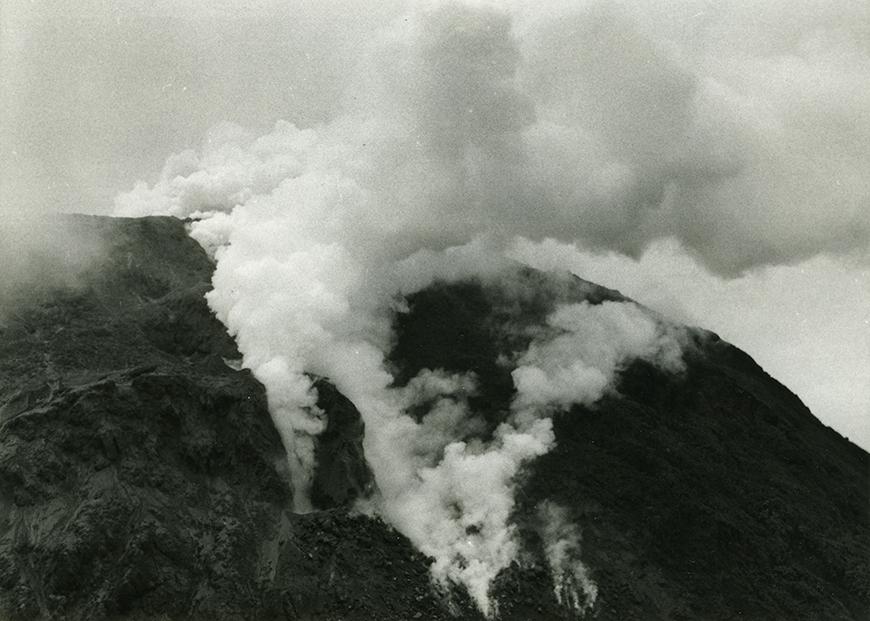Atmospheric Pressures: Climate Imaginaries and Migration in the Caribbean (ARCH 6308/6408, COML 6369, SHUM 6308)
Thursdays, 2:30–4:25 p.m.
Course Instructors: Tao DuFour, assistant professor, architecture; and Natalie Melas, associate professor, English
This seminar explores the significance of climate imaginaries for forms of urban and hinterland migration and mobility in the Caribbean as these relate to colonial and postcolonial histories, and in contemporary contexts defined by the urgencies of environmental hazards. Taking “climate” in a wider sense, the seminar situates climate imaginaries — as mediated through literature, film, landscapes, and spatial forms — as intersubjective horizons within which understandings of climate change and the experience of its effects are enmeshed.
For postcolonial Caribbean thinkers, the horizon of the natural world is at the same time constitutive of a form of historicity. Édouard Glissant proposes a nonfoundational postcolonial Caribbean imaginary in which the archipelago is a “multirelation” where “this sea is here within us with its load of islands finally discovered.” The seminar is particularly concerned to explore relations between the more tangible effects of climate on urban, infrastructural, and ecological landscapes in the Caribbean and intersubjective experiences of climate as mediated through literary and mythopoetic forms: from historical accounts of climate as "catastrophe" — the effects of hurricanes, volcanoes, earthquakes on insular urbanities — to climate as a more general, atmospheric horizon in the constitution of Caribbean worlds.
Guyanese writer Wilson Harris frames the urban environmental question as an ontological one: “Cities have come to nestle in branches of clay or stone in valleys or mountains. . . .Their hope is born of the life of imagination’s tree in which sculptor and painter and architect and carpenter and mystic sensitize and resensitize themselves to rhythms and pulses orchestrated through being and apparent nonbeing.” Thematically, the seminar draws on the work of anthropologist Anna Lowenhaupt Tsing, interpreting the industrialized-urbanized ecological territory in terms of “capitalist ruination,” which, nonetheless, holds possibilities for other modes of environmentality and subject formation, as the hazards affected by climate change fundamentally disrupt and transform the very urbanity constituted through colonial and later resource extractive appropriations.
The seminar will explore the migratory effects of climate imaginaries in the Caribbean from a variety of perspectives: mythopoetic senses of migration such as interspecific morphoses — the becoming animal, plant or "spirit" of the human — and the persistence of Amerindian horizons; genocidal displacements, enslavement, indentureship, and the historicity of colonial violence and revolution; the ecological constitution of the region as migratory formation; urban-hinterland and interisland migration as a consequence of environmental hazards and catastrophes; rural-urban migration and the expansion and planning of cities as a function of modernizing and industrializing processes; and migration as a metaphorical schema in the generative constitution and literary, artistic, and spatial articulation of Caribbean world-horizons.
The seminar will be structured along thematic lines, including philosophies of relation and postcolonial theory; the anthropology of "nature"; phenomenologies of the "natural" world and corporeity; philosophies of "atmosphere"; political ecology and feminist environmental theories; landscape theory; theories of urbanization and philosophies of territory. In exploring these themes, we will consider the Caribbean’s multiple linguistic and creole contexts, including those of Trinidad and Tobago, Martinique, Guadeloupe, Haiti, Cuba, and Guyana.
